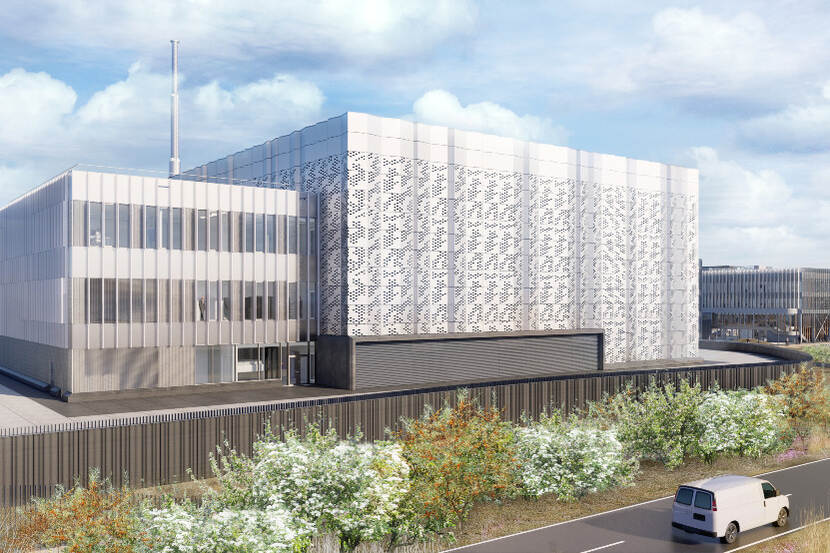 The Netherlands nuclear regulator, Autoriteit Nucleaire Veiligheid en Stralingsbescherming (ANVS) has said that the PALLAS Reactor Preparation Foundation (PALLAS) has applied for a licence for a new research reactor in Petten (municipality of Schagen, North Holland) for medical isotopes. “These isotopes are used, among other things, for the treatment of cancer. The application contains the required information and is now being processed,” ANVS said. PALLAS also applied for a Water Act permit from Rijkswaterstaat. As well as these permits required under the Nuclear Energy Act and the Water Act, an Environmental Impact Assessment (EIA) report is also needed. The ANVS and Rijkswaterstaat (RWS) have previously indicated what exactly PALLAS should investigate for the EIA. The ANVS and Rijkswaterstaat tested the EIA against this, which is included in the permit application that PALLAS has now submitted to the ANVS.
The Netherlands nuclear regulator, Autoriteit Nucleaire Veiligheid en Stralingsbescherming (ANVS) has said that the PALLAS Reactor Preparation Foundation (PALLAS) has applied for a licence for a new research reactor in Petten (municipality of Schagen, North Holland) for medical isotopes. “These isotopes are used, among other things, for the treatment of cancer. The application contains the required information and is now being processed,” ANVS said. PALLAS also applied for a Water Act permit from Rijkswaterstaat. As well as these permits required under the Nuclear Energy Act and the Water Act, an Environmental Impact Assessment (EIA) report is also needed. The ANVS and Rijkswaterstaat (RWS) have previously indicated what exactly PALLAS should investigate for the EIA. The ANVS and Rijkswaterstaat tested the EIA against this, which is included in the permit application that PALLAS has now submitted to the ANVS.
In addition to studying the EIA, the ANVS investigates whether the design of the research reactor, as described in the safety report, meets all legal rules and requirements for nuclear safety. The safety report describes, among other things, how the installation works: from the design and operation of the cooling pipes and ventilation systems to how accident situations are tackled.
PALLAS is a new research reactor that is intended to replace the High Flux Reactor (HFR) in Petten. Early 2004, the current owner of the HFR, the Nuclear Research Group (NRG), initiated PALLAS together with a group of companies and research institutes, namely Mallinckrodt Medical (currently Curium), Reactor Institute Delft (part of TU Delft) and the European Institute for Energy and Transport (JRC-IET). NRG as project manager, worked on the further elaboration and implementation of the project and set up a dedicated project team in 2009.
The ageing of research reactors worldwide increases the risk of unplanned halts to production. This problem led to a global shortage of medical isotopes from 2007-2011. In order to secure the supply of medical isotopes on a global scale, the Dutch government decided to replace the High Flux Reactor. The Ministry of Economics and the province of Noord-Holland granted PALLAS a loan of €80 to finance the first phase.
With the establishment of the Foundation Preparation Pallas-reactor in 2013, the PALLAS project was incorporated in an independent entity. The Foundation is responsible for the successful completion of the first phase of the project: the design, tendering and licensing procedure. The Foundation is also responsible for attracting funding for the second phase: the construction and commissioning. The Dutch government still has to make a formal decision about the PALLAS reactor
PALLAS has opted for a pool-type reactor designed to operate with low-enriched uranium. The design includes infrastructure, such as the cooling water supply, connections, sewerage, etc. Furthermore, it provides good logistics between all facilities, between the reactor and surrounding laboratories and office spaces.
Image: Artists impression of how the Pallas reactor building could look when complete (Image: ANVS)



